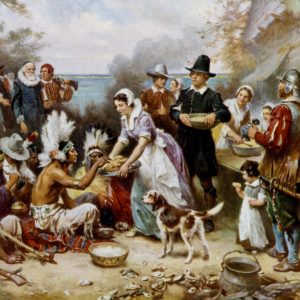 Private property rights and personal responsibility saved the Plymouth colony from the edge of extinction and laid the economic foundation for a free and prosperous nation.
Private property rights and personal responsibility saved the Plymouth colony from the edge of extinction and laid the economic foundation for a free and prosperous nation.
(Helen Raleigh – The Federalist) It is widely known that the early Pilgrims came to the New World to escape religious persecution. What is lesser known is that their spiritual adventure was also a commercial enterprise. Today’s self-identified democratic socialists like to claim real socialism has never been tried in America, but they need to brush up on their history. The Pilgrims did try it — and it failed.
In the early 17th century, King James I chartered a joint-stock company with private investors, the Virginia Company of London, to manage the establishment of future colonial settlements in North America. Any English settlers who wanted to leave England for the New World were required to obtain a license from the government and a land patent from the Virginia Company. They also had to raise money from investors to fund their voyage and the establishment of a new colony. Investors expected to receive produce from the future colony to cover their investment and generate a handsome return.
When one group of Puritans from the Separatist Church, led by Rev. John Robinson, decided to migrate to the New World, where they could establish a new place to adhere to God’s teachings, they sent two representatives, Robert Cushman and John Carver, to London to secure a land patent in the existing Virginia colony. A London merchant, Thomas Weston, probably one of the earliest venture capitalists, led a group of investors and offered the Puritans a deal they couldn’t refuse.
The deal stipulated that everything the colonists produced would belong to a “commonwealth,” and at the end of seven years, everything would be equally divided between investors and colonists. To make sure the investors would get their money back, this deal forbade colonists from having any personal time to work on any private business during the seven-year contract term.
The terms of this deal seem harsh today but are understandable if we put ourselves in the investors’ shoes. Lending money to a group of people traveling to a faraway land was a risky business. There was no guarantee the travelers would make it, and even if they did, the investors would have no control over what happened next.
The representatives of the Separatist Church accepted the deal without telling their congregation all the details. On Sept. 6, 1620, the Mayflower departed from England with 102 passengers, including members of the Separatist Church and nonbelievers. After a 66-day-long journey, the settlers arrived in Provincetown Harbor, Plymouth Colony, which is now Massachusetts.